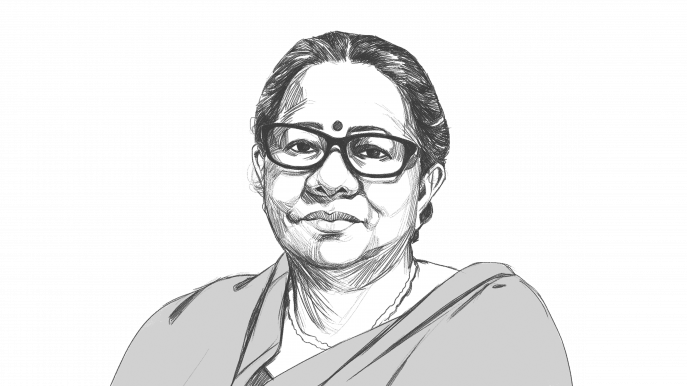Low investment in education remains a concern

The whole world came to a standstill during the pandemic and Bangladesh was no exception. All crucial sectors were hit hard but the impact on education was unprecedented with students suffering an irreparable learning loss while being out of classrooms for a long time.
A portion of the students received lessons through alternative means but those were no substitute for classroom teaching. However, as there is a considerable lack of data in measuring learning loss, plans and programs based on inaccurate data will not work.
If learning loss is not scientifically measured, then how would we know to what extent students had suffered area wise? A range of lesson plans was taken based mainly on assumptions in primary, secondary and tertiary levels of education.
Research done by some non-governmental organisations shows that subject-wise (Bangla, English, Maths) learning loss is high. With government approval, we are conducting a scientific study, which may give some insight into the matter. In this study, an assessment is being done with a selected group of students inside classrooms.
In November 2020, the Ministry of Education and the Ministry of Primary and Mass Education launched a "Covid Response and Recovery Plan". However, there was not much progress in implementing that plan.
The fact that child labour and child marriages have increased during the pandemic period has come up in some official data but there is kind of a reluctance among policymakers to acknowledge this issue.
At the pre-primary level, many students have dropped out during Covid and we are yet to overcome that hurdle. Although visible progress has been made in terms of enrolment at the primary level but the learning loss continues to impact the whole system negatively. Effective measures should be in place to compensate for it. Many leaners have dropped out of the secondary level also, not to mention the tertiary level situation.
The quality of education in Bangladesh has long been a major concern and it has become more acute in current times. Recently, around 93% of the HSC-passed students who appeared at Dhaka University admission test failed which simply indicated that quality of education needs to be looked at very seriously.
Added to these are issues of food and energy security stemming from global economic crisis and ongoing Russia-Ukraine war. The poor, the lower income groups and the middle class have fallen into financial trouble lately which has become visible by the long queues in front of TCB sales trucks. In such a situation, education becomes less of a priority among the underprivileged particularly those who are struggling to meet their daily needs of food and other essentials.
We have been demanding for an increase in the overall sum of stipends for students. Taking inflation into account the amount of stipend should be adjusted as soon as possible. Moreover, the stalled "mid-day meal" programme also needs to be brought back to schools at least as a targeted intervention. It will play a supportive role for the students of families who are at risk of food security and malnutrition.
The year 2022 was a period of transition for us following the COVID impacted disastrous 2020 and 2021. However, despite COVID and the negatives effects of Ukraine War, our economy is getting back to track, agriculture is showing positive trends but we do not seem to have progressed far in education. One may doubt whether "Education for All" is on our priority list at all.
I do not see any lack of political commitment in this regard. We have seen many initiatives taken to strengthen the economy, but unfortunately nothing of that sort has been in place for the education sector. It is sad but true that we have not seen any "stimulus package" in education during Covid. Some teachers are given some incentives in special cases but meanwhile, a number of private educational institutions have already closed down due to financial crisis during Covid.
However, we must appreciate our governments huge step forward in introducing a learner oriented, timely curriculum for bringing in positive changes in the teaching – learning processes.
Extensive planning for a forward looking holistic development of education is essential. A mapping is needed to identify what is needed and where. Planning for ensuring education with quality and equity should be done in such a way that institutional capacity and teacher competence increase. Access to information and communication technology has increased greatly during Covid which should also be properly utilized in education.
Alongside planning, proper implementation, effective monitoring and adequate investments are required. There is no alternative but to increase public investment in education. However, there has long been a weakness in our monitoring mechanisms for ensuring timely and effective utilizations of whatever investments we made in most of the public sectors.
We have always expected that proper investment in education will remain a priority. It is claimed that budget allocation is the highest in education but that is not the case when it is viewed as a percentage of GDP or as a proportion of the total budget.
Bangladesh is trying to achieve the Sustainable Development Goals (SDGs). In line with the SDGs commitments, a minimum of 4% of GDP and 20% of the total budget should be allocated to education. But we are yet to achieve that goal.
Unfortunately, Bangladesh keeps on being the lowest in South Asia in educational investment. In many areas of development, we have come a long way, built huge structures like the Padma Bridge, Metro-rail and other infrastructures. But, the capacity-building framework for human capacity development still remains weak.

TBS Correspondent Kamran Siddiqui talked with Rasheda K Chowdhury


 Keep updated, follow The Business Standard's Google news channel
Keep updated, follow The Business Standard's Google news channel















